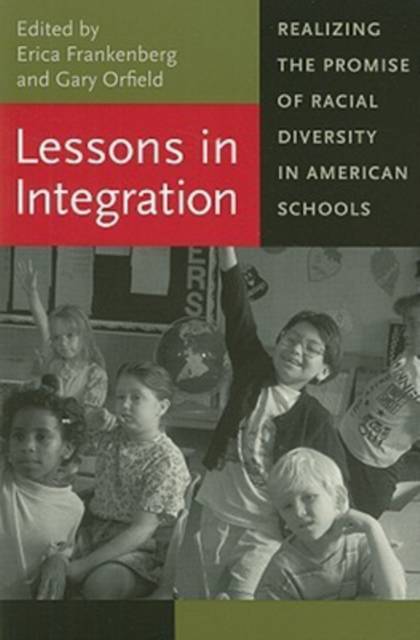
- Retrait gratuit dans votre magasin Club
- 7.000.000 titres dans notre catalogue
- Payer en toute sécurité
- Toujours un magasin près de chez vous
- Retrait gratuit dans votre magasin Club
- 7.000.0000 titres dans notre catalogue
- Payer en toute sécurité
- Toujours un magasin près de chez vous
Lessons in Integration
Realizing the Promise of Racial Diversity in American Schools
Description
Segregation is deepening in American schools as courts terminate desegregation plans, residential segregation spreads, the proportion of whites in the population falls, and successful efforts to use choice for desegregation, such as magnet schools, are replaced by choice plans with no civil rights requirements. Based on the fruits of a collaboration between the Civil Rights Project at Harvard University and the Southern Poverty Law Center, the essays presented in Lessons in Integration: Realizing the Promise of Racial Diversity in American Schools analyze five decades of experience with desegregation efforts in order to discover the factors accounting for successful educational experiences in an integrated setting. Starting where much political activity and litigation, as well as most previous scholarship, leaves off, this collection addresses the question of what to do--and to avoid doing--once classrooms are integrated, in order to maximize the educational benefits of diversity for students from a wide array of backgrounds.
Rooted in substantive evidence that desegregation is a positive educational and social force, that there were many successes as well as some failures in the desegregation movement, and that students in segregated schools, whether overwhelmingly minority or almost completely white, are disadvantaged on some important educational and social dimensions when compared to their peers in well-designed racially diverse schools, this collection builds on but also goes beyond previous research in taking account of increasing racial and ethnic diversity that distinguishes present-day American society from the one addressed by the Brown decision a half-century ago. In a society with more than 40 percent nonwhite students and thousands of suburban communities facing racial change, it is critical to learn the lessons of experience and research regarding the effective operation of racially diverse and inclusive schools. Lessons in Integration will make a significant contribution to knowledge about how to make integration work, and as such, it will have a positive effect on educational practice while providing much-needed assistance to increasingly beleaguered proponents of integrated public education.
Spécifications
Parties prenantes
- Editeur:
Contenu
- Nombre de pages :
- 384
- Langue:
- Anglais
- Collection :
Caractéristiques
- EAN:
- 9780813926315
- Date de parution :
- 29-11-07
- Format:
- Livre broché
- Format numérique:
- Trade paperback (VS)
- Dimensions :
- 155 mm x 229 mm
- Poids :
- 498 g

Les avis
Nous publions uniquement les avis qui respectent les conditions requises. Consultez nos conditions pour les avis.





